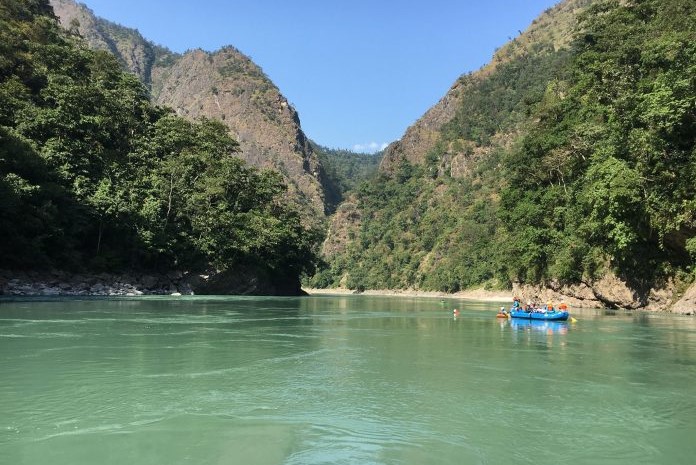KATHMANDU: The Nepal Electricity Authority (NEA) has undertaken a comprehensive study of the Karnali Chisapani hydropower project, recognized as Nepal’s largest hydroelectric initiative to date. The government has delegated the NEA to conduct an in-depth analysis of the project, deemed of “strategic importance” for advancing large-scale projects, enhancing energy security, and managing flood control and water resources.
Following the Ministry of Energy, Water Resources, and Irrigation’s proposal, the Council of Ministers, in a meeting on November 9, entrusted the NEA with the responsibility of studying all facets of the project. The NEA, leveraging its expertise, will conduct a detailed feasibility and environmental study, along with an intricate engineering design for the Karnali Chisapani Reservoir Project.
Upon completing the three-year study, a comprehensive report, inclusive of construction recommendations and an evaluation of risks and benefits in lower and upper coastal areas, will be submitted to the government through the Ministry of Energy. The NEA will bear the entire cost of the study.
Prime Minister Pushpa Kamal Dahal has accorded special priority to the 10,800-megawatt project, expressing commitment to advancing its study during the 38th-anniversary ceremony of NEA on August 18. The government’s decision to study the project internally has revived discussions surrounding its potential, bringing renewed hope for its realization.
Energy Minister Shakti Bahadur Basnet has instructed the NEA to promptly commence the study process in alignment with the government’s directives. He emphasized the project’s strategic significance in terms of capacity and investment, urging an immediate start to the study.
The government underscores the need for large-scale projects to balance electricity supply and demand, ensuring ample power supply nationwide and enabling electricity export to bilateral, sub-regional, and regional markets.
Karnali Chisapani, identified as a project of national and regional importance four decades ago, is poised to undergo an update of its detailed feasibility study. The government aims to modernize the study, considering technical, social, and environmental aspects inherent in such reservoir and multi-purpose projects.
The project’s potential has attracted interest from the Adani Group, with proposals for substantial investments in Nepal’s hydropower and electricity infrastructure.

